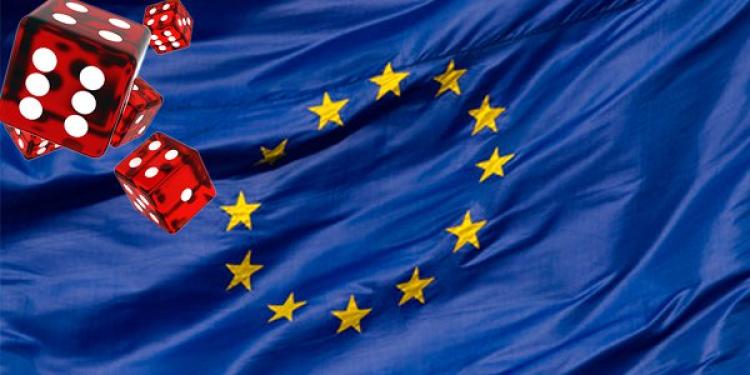Internet Gambling in the EU Moves Forward, but Still Has a Long Way to Go
Posted: September 9, 2014
Updated: June 4, 2017

Europe’s online casino industry is making some progress, as new opportunities appear on the horizon.
With controversy surrounding the new British gambling laws, Hungary banning foreign-based online casinos, Greece increasing taxes, and the European Commission setting new guidelines for player protection, the European internet gambling scene has seen a lot of changes this year.
Clearly not all of them were positive and there is a lot more work to be done, as many countries are still in the process of regulating the market or changing their current laws. But let’s look on the bright side for a change, and see which countries have taken important a few steps in the right direction.
Germany awards first sports betting licenses
The best news is coming from Germany, where the regulatory body has awarded its first sport betting licenses just a few days ago. Mybet Holding was among the first companies to receive approval, and will soon begin to provide services on one of Europe’s largest gambling markets.
Although authorities have not issued the new licenses yet, players can access the following online sportsbooks in Germany:
• Winner Sportsbook
• BetVictor
• Bet365
• Ladbrokes
• Betway Sports
The Hesse Ministry of the Interior and Sport (HMDIS) will issue the license on September 18, enabling mybet to launch its online sportsbook in Germany. Until then, applicants who have been turned down can pursue legal recourse and get another shot at obtaining a license.
The local media has reported that German authorities have issues a total of 20 federal sports betting licenses, welcoming both local and international operators to the freshly-opened market. Successful applicants will have to abide by a set of strict regulations featured in the state Treaty on Gambling, Glücksspielstaatsvertrag.
Despite the new regulatory measures, some law experts are skeptic about the future of Germany’s online sports betting industry. Dr. Wulf Hambach, who represents a local law firm, thinks this will not stop players from accessing illegal websites.
“The licenses will mean more lawsuits and regulatory insecurity since those many operators will try to stop the application proceeding. If you limit the number of licenses and limit the games to sports betting and install an unreasonable tax, then the players will not evidentially change their gaming behavior,” he told reporters.
Swiss internet gambling in the works
Meanwhile, another country is preparing to legalize the online gambling market. Earlier in August, Switzerland’s Conference of the Cantonal Directors in Charge of Gambling and Lotteries (CDCM) said it supports any initiative to regulate internet gambling in Switzerland, as long as the market will not be excessively liberalized.
In a statement sent to the press, the CDCM said “it would be convenient to give gambling operators the opportunity to offer their games on the Internet,” but added that the new Swedish gambling laws should only allow the country’s land-based casino operators to obtain licenses.
“We support the idea of extending the current license. The online environment is not a new market: it is only a new medium to distribute the offer already available, it addresses the same clients and it meets the same needs of the traditional games,” the CDCM stated.
Officials argued that allowing international online operators to enter the market would give them an unfair advantage, as they have both the necessary experience and logistics to surpass local gambling companies.
“The arrival of new operators specialized in the online sector would lead to a competition that would be problematic from a political, social and possibly even economic point of view. We believe that those who hold a license to offer brick-and-mortar casino games should not be ‘punished’ for the fact that they have respected the rules that currently forbid them to run operations online.”
The CDCM has proposed that Switzerland make all gambling winnings tax free. In addition, small poker tournaments will be allowed outside land-based casinos.
Spain goes live
At the end of July, Spain took an important step towards improving its internet casino market when the government finally approved online slots and exchange betting. The public consultancy period ended in March, and the Directorate General for the Regulation of Gambling (DGOJ) said it had received a number of suggestions and observations to improve the current Spanish gambling laws.
After a last stage where the proposal was “enriched and refined”, authorities were finally ready to publish the new ministerial orders. It is estimated that they will be fully implemented by January 2015.
“With the adoption of these regulations the online gaming market will be strengthened,” the Ministry of Finance and Government said in a statement.
“As a consequence of this (the regulations) will make a positive impact regarding the protection of particularly vulnerable groups, the fight against fraud, generating tax income, and ultimately the creation of an environment in which users can engage in this activity in a safe, responsible manner.”
While regulations are far from being perfect in most European countries, at least authorities are trying to figure out the best ways to help the industry grow and protect customers at the same time. Germany, Spain and Switzerland have made some progress, and surely other country will follow their examples in the near future.












